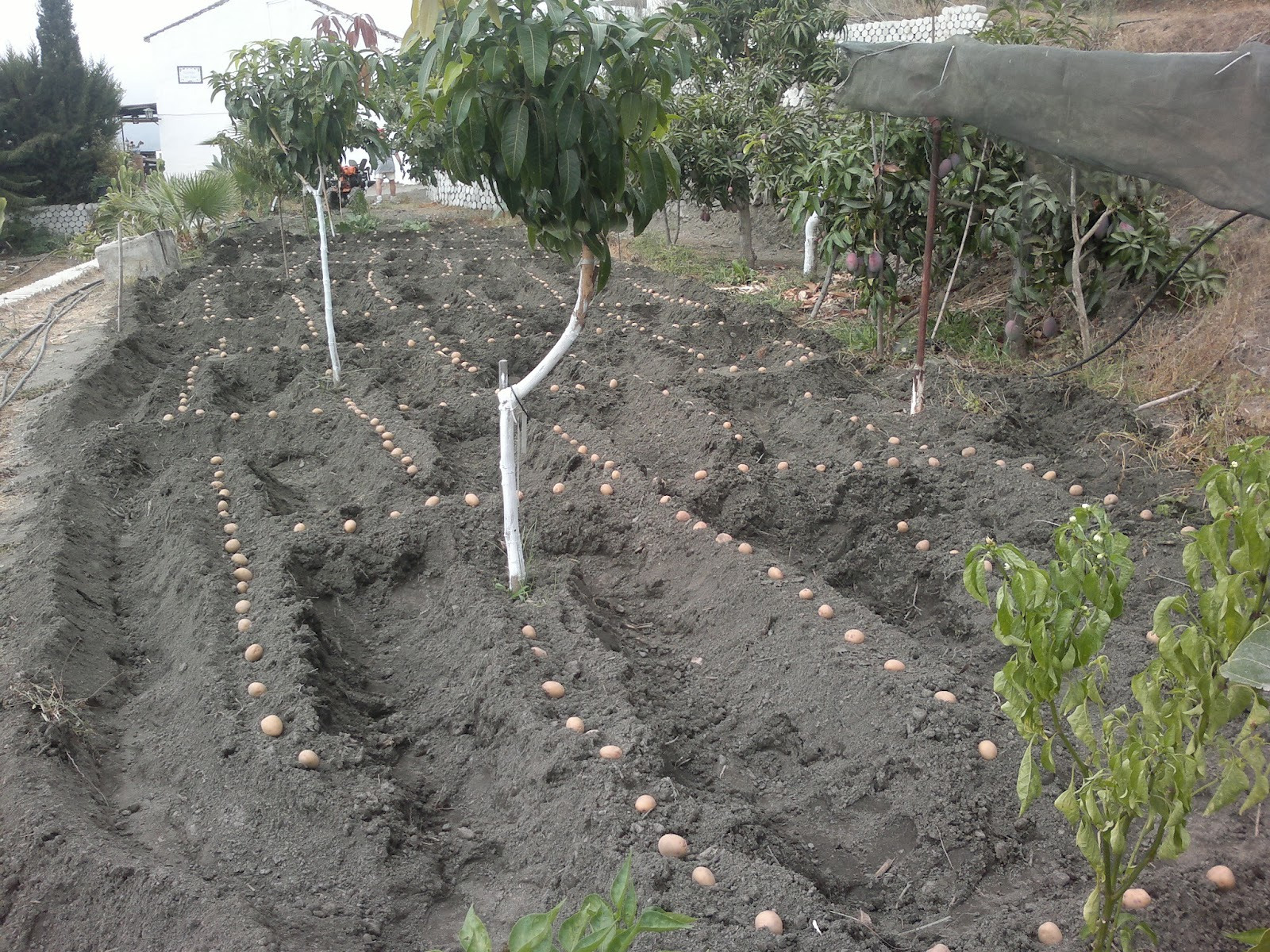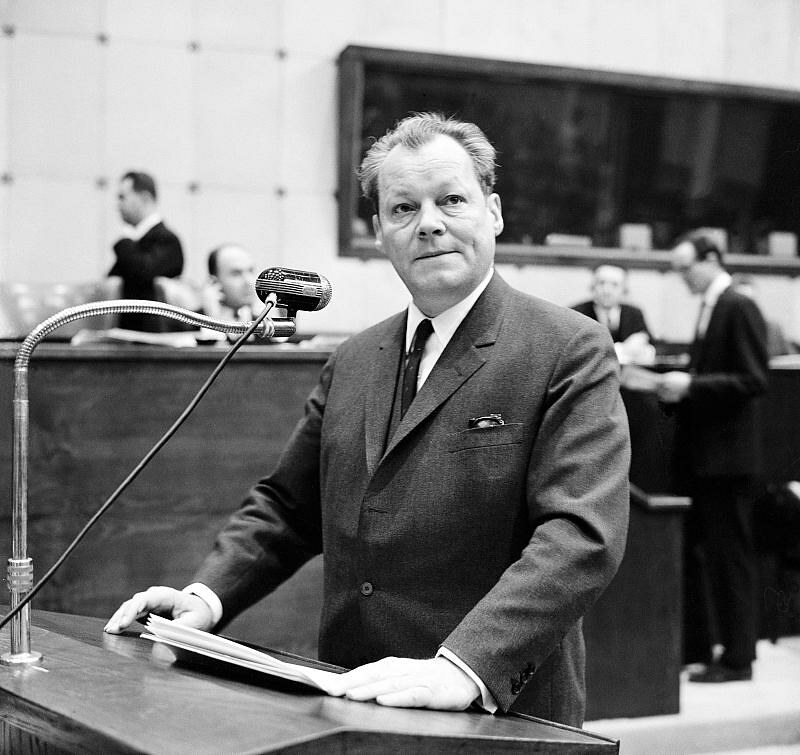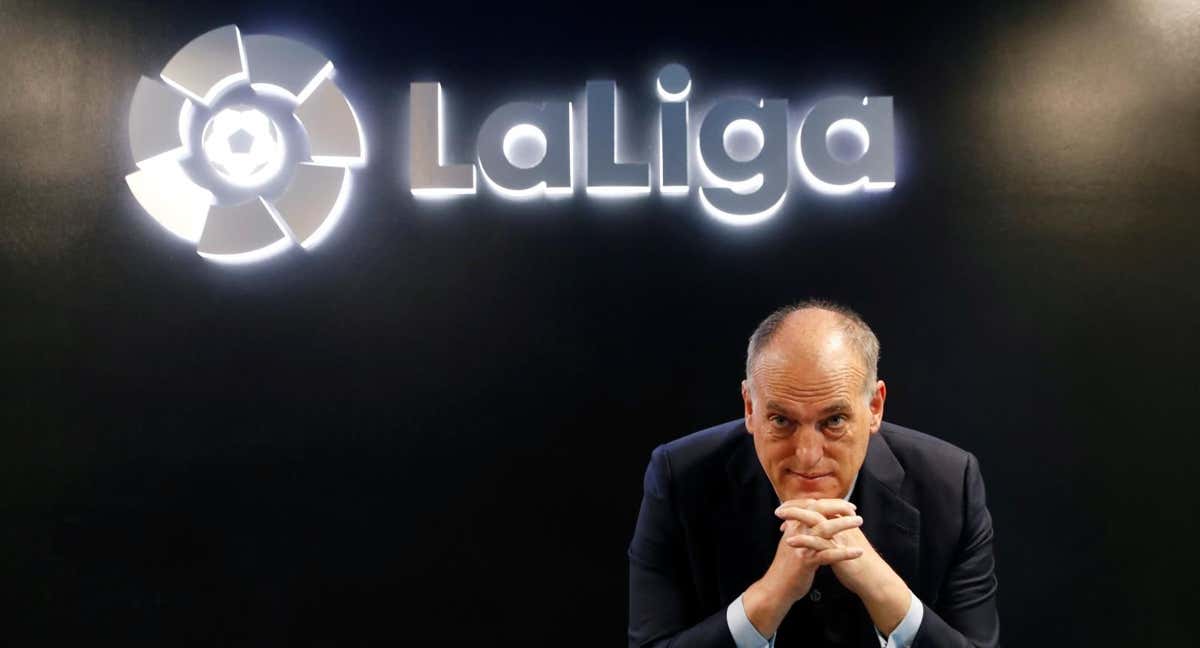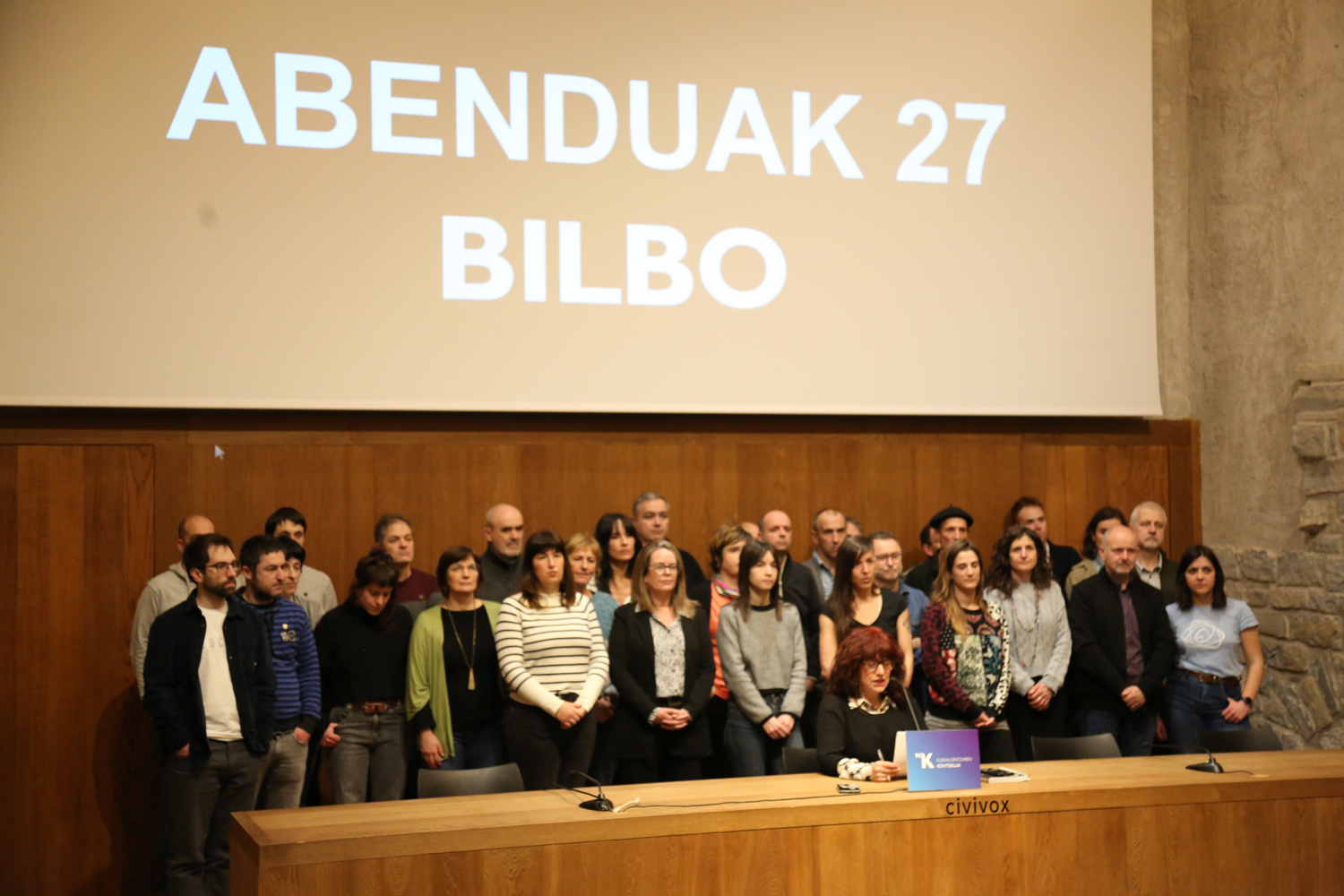How the arms industry prevailed in the European Union’s budgets
- Far from television screens and discussions in accommodation, the most important decisions of public administrations are hidden in their annual budgets. What the European Union has just adopted a while ago has been marked by a change that will profoundly mark the future of the citizens: Europe will subsidise billions of euros to the forest-based industries, mainly to produce drones, robots and other automated weapons and distribute them around the world.
![I Stop the Arms Trade [Ni ere Arma Salerosketa Geldiarazten] erakundeak zabaldutako irudian, ekintzaile bat odol koloreko tintaz zikindua: “Europar Batasunaren dirurik ez arma saltzaileentzat” dio atzeko afixak. Europak, estatuek eta baita gobernu autonom](https://www.argia.eus/astekaria/docs/2597/argazkiak/i-stop-the-arms-trade.jpg)
"Do not let research into the arms industry be included in the new EU budget. EU money does not have to go to military technology. Research funding must go to non-violent means of conflict prevention and, in particular, to the roots of global concern.” Already 143,000 Europeans have signed the EU’s request: They don't invest in weapons.
“We all want to live in a peaceful world – they say in the manifesto – and for that the European Union was created. But the European Commission, under pressure from the arms industry, wants to budget billions of public money to develop advanced military technology for the first time since the creation of the EU. Although they are presented as a ‘defence’ issue, the real objective of subsidies is to promote the competitiveness and export capacity of the arms industry, including Saudi Arabia, to countries involved in murderous conflicts.”
Despite the protests, on 13 March the European Parliament approved a package of EUR 500 million for the development of defence equipment in 2019-2020. To these must be added 90 million more aid previously approved for the preparation of military investigations. The change has only just begun: since last year the European Commission has announced that it wants to create by 2021 a fund with annual spending capacity of EUR 5.5 billion “to stimulate European defence”.
In the presentation of the gigantic investment, in June 2017, EU Vice-President Jyrki Katainen set the motive for employment, growth, investment and concurrence: “Across Europe, people are concerned about their safety and that of their children.”
Conversely, the European Anti-Arms Trade Network (ENAAT) believes that the EU’s profound change in not spending almost nothing on defence is the result of a campaign launched a long time ago, as explained by Laetitia Sedouk to the Multinational Observatory multinationales.org: "The armers have come through the small door, talking about internal security, border surveillance and not defence. Little by little we have come here.”
Over the five short years from 2012 to 2017, the lobby budget organised by the major European arms companies
has doubled from EUR 2.8 million per year to EUR 5.6 million. If this is believed to have been stated by the shellfish industry, some experts say that the European Aerospace and Defence Industries Association (ASD) invested ten times more of that figure in the lobby sector.
The most powerful European companies in the sector are members of the DSA: Airbus, BAE, Dassault, Ficantieri, GKN, Indra, Leonardo, Liebherr, Rolls-Royce, Safran, Saab, Thales… The associations of each country are linked to them. For example, TEDAE groups companies operating in the military industry in Spain, including some of the CAPV: Aernnova, Tecnalia, ITP Aero, SAPA Placencia and Sener.
Prioritizing weapons rather than the environment
In 2015, the European Commission appointed a 15-person Personalities Group (GoP) to advise on what to do in military research in the coming years. There is nothing else to do with the names of the list and the position of each to realize that the critics of the arms industry have no reason: almost all of them are the bosses of the military industry ASD’s bosses. The European Commission recommended that the European military industry, given the need to improve its competitiveness, should provide an appropriate funding programme for the European Union.
“Industrialists have intervened in the whole political decision-making process,” says Bram Vranken, representative of the Flemish pacifist movement Vredesactie. “The Commission has met at least 36 times in the drafting phase of this plan with industrialists. It cannot be denied that they are not achieving the objective, as they have incorporated large amounts into the budgets and along with them tender investment financing plans: “They have received subsidies of 125% for 100% products plus 25% for administrative expenses. This type of excellent funding is not offered to NGOs facing the most serious disasters in the world.”
And what investment will the EU prioritize? Research projects are largely focused on drones and robotic warfare systems, according to research by the Observatory of Arms: “In all new research, robotization appears, the goal is to make guns increasingly autonomous.” Next, when research lines are translated into concrete products, industrialists will be in a better position to export cutting-edge weapons.
One of the debates on this issue focuses on export control. Because even though armoury companies are getting more and more subsidies from Europe, export control remains a matter for each State. Germany, which has joined the pact reached by Angela Merkel with the SPD, said that it wants to strengthen control of the European economy. France, for its part, does not even want to hear about it. Industrialists are pressing for free hands on exports on the pretext of competitiveness. Nor does the French army want to change in this: “France must maintain its capacity for decision and initiative on its part to defend its interests.”
What is more, armoury industrialists have managed to make new patents financed by subsidy their property, with the double detriment that this entails for European society. On the one hand, the wealth paid out of public money is absorbed by private capital. On the other hand, the loss of control of European political authority will allow companies to sell these technologies and patents to any customer in the world, including those who are capable of committing any crime.
It is the military spending of the European Union, adding up those of its Member States, the third largest in the world, after the United States and China. If Russia is spending EUR 69.200 million, the EU is EUR 264.300 million. Where will the Europe forced to cut its budget with Brexit get the new aid? Many entrepreneurs fear that the environment and climate will be the beech forests.
Meanwhile, Peace Researchers also collect accessions to modify the EU budget: “The implementation by the European Union of a military research programme is the greatest acceleration ever seen in European militarisation. The wars of the future will depend on the military technologies that we are developing now.”
Pasa den asteko "kaleratze ilegala" salatu dute hainbat herritarrek, ostiral arratsaldean.
Manifestazio jendetsu batek herriko kaleak zeharkatu ditu, Poliziaren gehiegizko dispositibo batek zainduta, gazteek kudeatutako guneen defentsan eta Gaztetxeak erasoen aurrean defendatzeko. Manifestazioaren amaieran, publiko egin dute iragarpena.
Historia errepikatzen dela idatzi zuen Marxek, “lehenik tragedia gisa, gero fartsa moduan”. Armagintzaren eta militarismoaren inguruan errepikapen hutsa ez, espiralean goraka doan buklea ari gara bizitzen, fartsatik asko duena, eta tragedian amaitzeko gero eta aukera... [+]
Astelehen honetan hasita, astebetez, Jon Miranderen obra izango dute aztergai: besteren artean, Mirande nor zen argitzeaz eta errepasatzeaz gain, bere figurarekin zer egin hausnartuko dute, polemikoak baitira bere hainbat adierazpen eta testu.
Ohe beroan edo hotzean egiten da hobeto lo? Nik zalantzarik ez daukat: hotzean. Landare jaioberriek bero punttu bat nahiago dute, ordea. Udaberriko ekinozio garai hau aproposa da udako eta udazkeneko mokadu goxoak emango dizkiguten landareen haziak ereiteko.
Duela lau urte abiatu zuten Azpeitian Enkarguk proiektua, Udalaren, Urkome Landa Garapen Elkartearen eta Azpeitiako eta Gipuzkoako merkatari txikien elkarteen artean. “Orain proiektua bigarren fasera eraman dugu, eta Azkoitian sortu dugu antzeko egitasmoa, bere izenarekin:... [+]
Itsasoan badira landareen itxura izan arren animalia harrapari diren izaki eder batzuk: anemonak. Kantauri itsasoan hainbat anemona espezie ditugun arren, bada bat, guztien artean bereziki erraz atzemateko aukera eskaintzen diguna: itsas-tomatea.
Udaberrian orain dela egun gutxi sartu gara eta intxaurrondoa dut maisu. Lasai sentitzen dut, konfiantzaz, bere prozesuan, ziklo berria hasten. Plan eta ohitura berriak hartu ditut apirilean, sasoitu naiz, bizitzan proiektu berriei heltzeko konfiantzaz, indarrez, sormen eta... [+]
Azken aldian, asteburuetan, Internet ez dabil ondo. Hasieran, zaila zen webguneei ezarritako blokeoen zergatia ulertzea; orain, badakigu Espainiako La Ligak agindu zituela, futbola modu ilegalean emititzea saihesteko. La Ligaren blokeoak euskal domeinuei eragiten dien... [+]
Bilbon eginiko aurkezpenean iragarri dute ekitaldia, euskarari "arnas berri bat emateko eta behar duen indarraldia gorpuzten hasteko" lehen urratsa izango dela nabarmenduta. Euskaltzale guztiei, baina, oro har, "justizia sozialean eta gizarte kohesioan aurre... [+]
Aljeriatik datoz Mohamed eta Said [izenak asmatuak dira], herri beretik. “Txiki-txikitatik ezagutzen dugu elkar, eskolatik”. Ibilbide ezberdinak egin arren, egun, elkarrekin bizi dira Donostian, kale egoeran. Manteoko etxoletan bizi ziren, joan den astean Poliziak... [+]











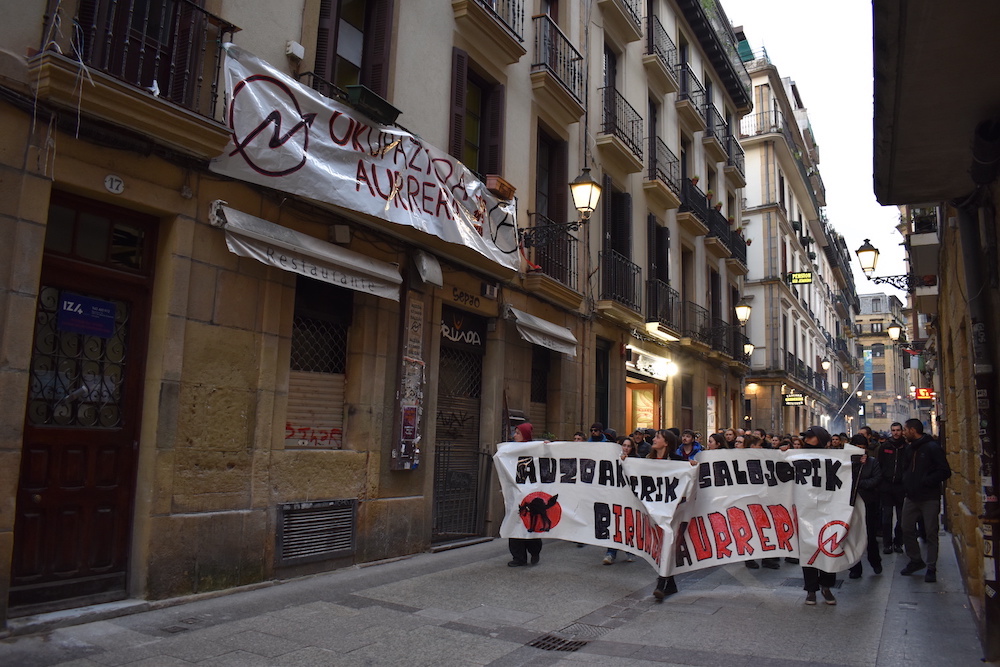
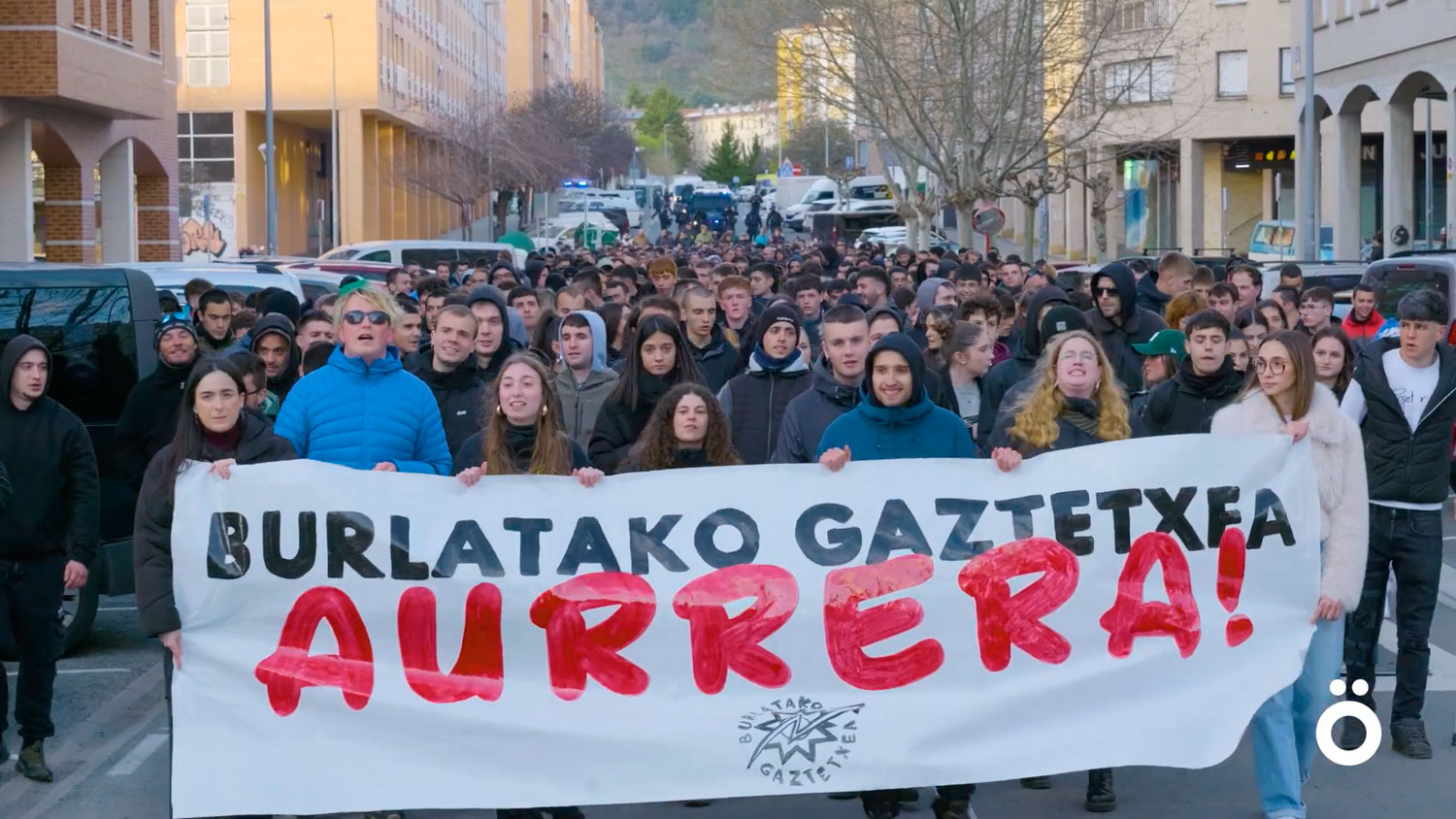
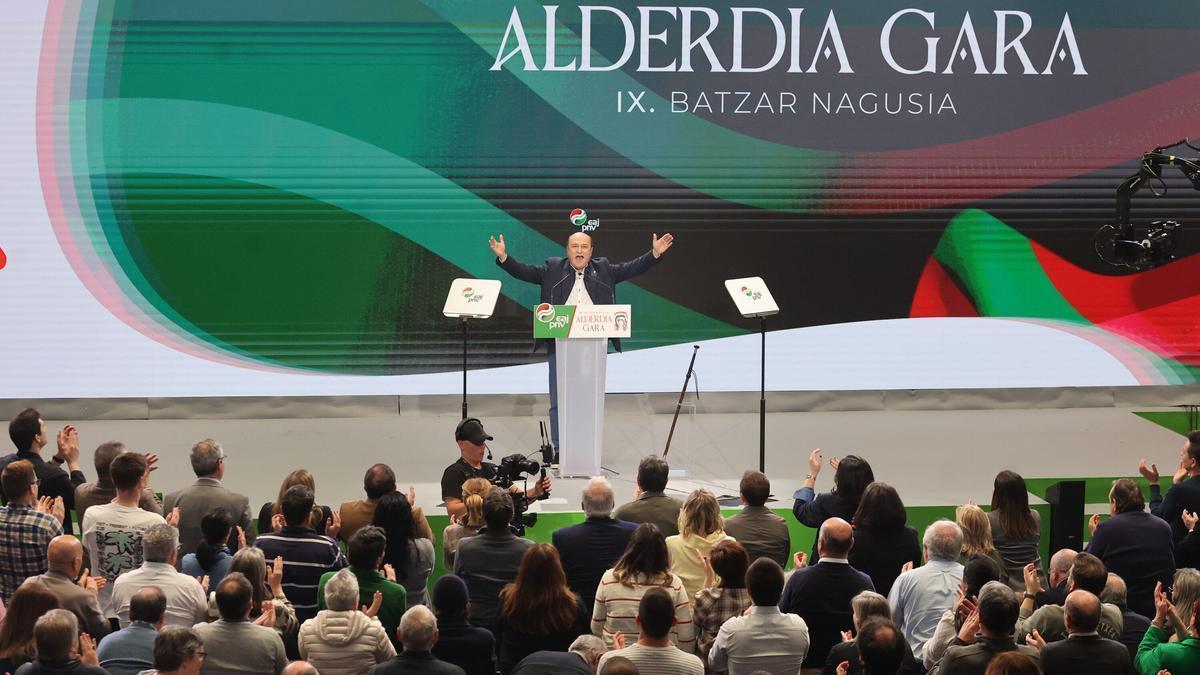
.jpg)

